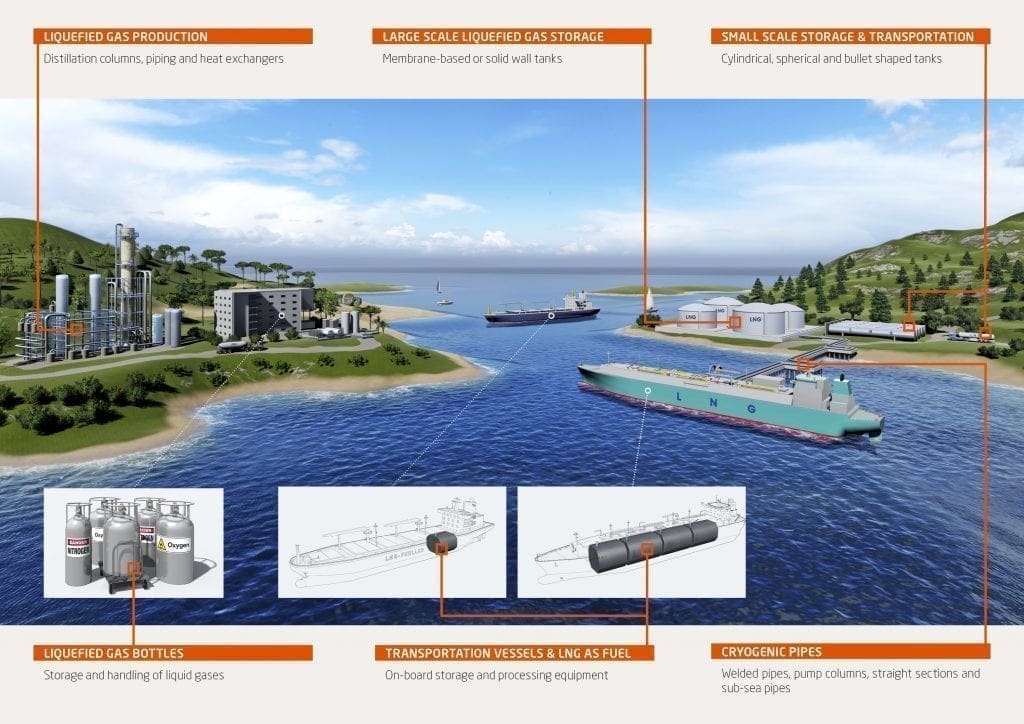Cryogenic Applications
The demand for gas as a cleaner source of energy and feedstock for petrochemicals has been growing markedly over the last decade and is forecast to continue to do so into the foreseeable future. The distances involved in transporting gas from source to market require significant investments in transport and storage facilities. In response to this demand, Aperam offers a range of stainless steels specially designed for cryogenic storage and the transportation of hydrogen and hydrocarbons like natural gas, ethane or ethylene. Aperam also offers grades for the handling of liquefied air gases like nitrogen, oxygen, argon and others.
High performance at very low temperatures
Meeting the increasing demand often requires that gas be transported great distances from source to market. That’s why many producers use liquefied natural gas (LNG), natural gas that has been cooled down to liquid form for simple and safe non-pressurized storage and transport. The LNG is then stored and transported in specially designed cryogenic equipments. Whether used for storage or transportation, all cryogenic applications require a material capable of withstanding very low temperatures. That material is austenitic stainless steel.

The advantages of stainless steel
- Durability
- High resistance to temperature variations
- High ductility, strength and toughness at cryogenic temperatures
- No embrittlement
- Weldability
- Corrosion resistance
Our offer
| Cryogenic grades | Product range |
| Aperam 201LN Aperam 304L, 304M Aperam 301LN, 304LN Aperam 316B, 316C, 316L |
Forms: sheets, blanks, coils, strips, tubes Thicknesses: from 0.8 up to 13 mm (consult us for thicknesses < 0.8 mm) Width: up to 2,000 mm according to thickness and grade Finish: cold rolled, hot rolled according to thickness and grade |
Business Case

Aperam is a leading provider of stainless steels for cryogenic applications, including Liquefied Natural Gas (LNG) storage. Recently, Aperam provided stainless steel used in the construction of a new, small-scale LNG facility
in Gibraltar. The regasification terminal is part of the territory’s transition away from diesel power generation to cleaner burning LNG. Designed by Chart, each of the five cryogenic tanks is 50 m long, 5.8 m in diameter, and has a capacity of 1 million litres. The 80 MW sustainable power plant fed by the LNG is expected to lower NOx emissions by 80% vs. the former diesel-based facility and virtually eliminate SOx and fine particulate emissions.
Several stainless steel grades are suitable for such uses, including classic austenitics and such high strength low alloy, economical material, as our 201LN grade, which is specifically tailored to meet the needs of cryogenic equipment fabrication.

 -1,07%
-1,07%